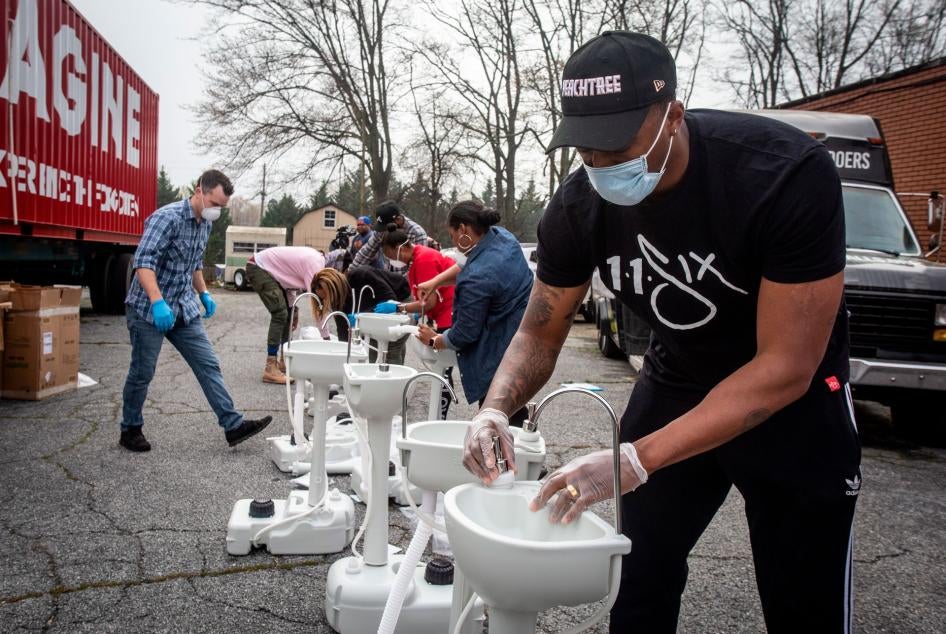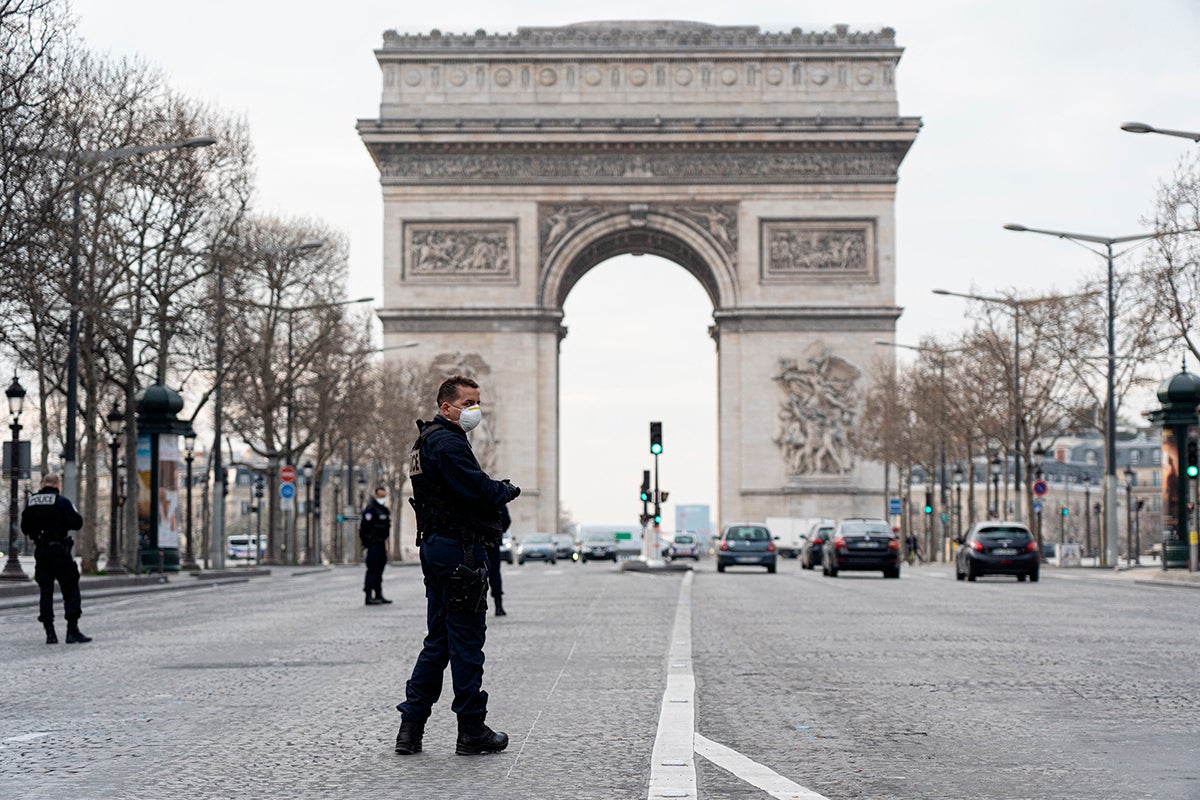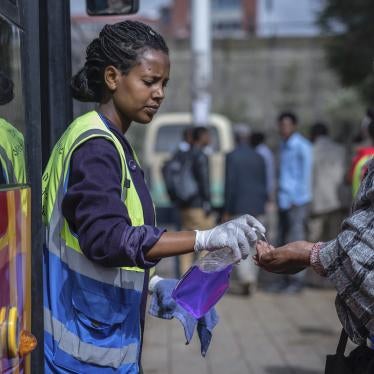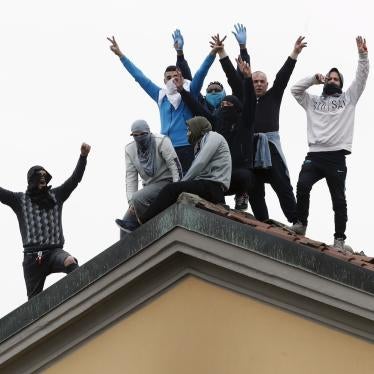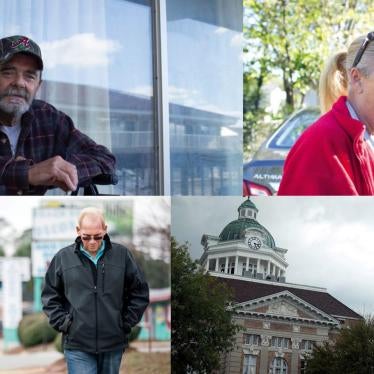Today is World Water Day, but as the world braces for the full impact of the COVID-19 pandemic, there is little to celebrate. The need for good hygiene like handwashing is key to protecting public health and responding to the virus. The World Health Organization (WHO) has emphasized this, noting that the provision of safe water, sanitation, and hygienic conditions is essential to protecting health during the COVID-19 outbreak.
But for the 780 million people around the world who lack access to an improved water source and 2.5 billion who lack access to proper sanitation, this guidance is a stark reminder of how vulnerable they are to COVID-19 and other illnesses.
For example, in Canada, boil-water advisories are disproportionately present in First Nation communities on reserves. Many families previously interviewed by Human Rights Watch reported skin problems which they, and some of their doctors, believed were associated with water conditions in their homes. Some reported limiting hygiene habits as a result of these concerns over water quality. And in Venezuela, handwashing and social distancing will be difficult to implement in a country where water shortages are routine, supplies are expensive, and people struggle to find food. Limited availability of water in public hospitals makes it difficult for even health professionals to wash their hands – making responding to COVID-19 all the more challenging.
Prisons, jails, and immigration detention centers are also at elevated risk. Human Rights Watch has documented how in prisons, for instance in Egypt and the United States, unreliable water access and deplorable hygiene and sanitation conditions make the virus’ spread all the more likely.
Asylum seekers, refugees living in camps and slums, and people without shelter, are similarly vulnerable. In the US, for instance, the approximately 550,000 people living on the streets struggle to access showers and facilities to wash their hands, especially in cities like Los Angeles, which have extremely high concentrations of people without homes. Homeless shelters in these cities have crowded conditions, conducive to the spread of COVID-19. And globally, more than one billion people live in slums or informal settlements, where access to adequate water and sanitation is scarce.
International human rights law mandates governments to ensure sufficient, safe, and accessible water and the highest attainable standard of health at all times. But the current crisis makes action all the more urgent. Governments should immediately implement measures to ensure access to clean water for all communities as a critical matter of public health and human rights.


